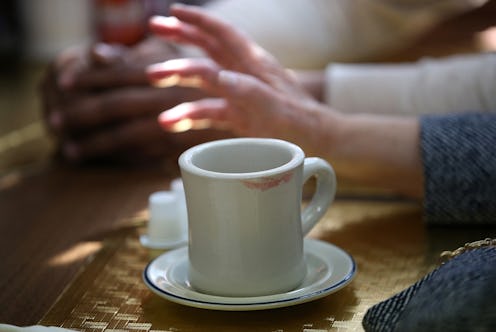Life
This Is Your Brain On Coffee
Dear coffee snobs/caffeine addicts, I have bad news for you: caffeine doesn’t actually give you real energy. In fact, according to a video posted on Business Insider, it just makes your brain think you’re not tired. I told you I had bad news.
So, how exactly does coffee trick my brain into thinking it's energized? I thought the whole zippy, awake-feeling sensation my espresso gave me was energy? Well, it’s not. According to this nifty little video, caffeine acts as an impostor in your brain. (Cue: a montage of you happily drinking coffee to The Way We Were.)
Let me explain.
Once caffeine gets into your blood stream, it goes to receptors in your brain that usually host adenosine — a compound that builds up in you the longer you’re awake in order to tell you when to sleep. So how does this amount to equal faux-energy? Because the caffeine replaces the adenosine in your system, and thus stops your brain from knowing when to get tired and go to sleep. Pretty creepy, right? Check out the video here.
On the flip-side, caffeine does have many positive effects on the brain and body (phew!). According to a video posted on TIME, caffeine breaks down into three different molecules — each with very different functions — upon entering the body: theobromine, paraxanthine, and theophylline. Theobromine increases the flow of oxygen to the brain, paraxanthine increases athletic performance, and theophylline increases heart rate and the ability to concentrate. And of course we have read about the links between caffeine and Alzheimer's, caffeine and dehydration, and caffeine and type-2 diabetes.
The takeaway, though, is that moderation is the key. The video notes that you should keep your caffeine intake below 400 mg — this is best way to keep from feeling the less desirable side effects the compound (like jitters and anxiety). To complete your education on caffeine and the brain, watch TIME's video:
